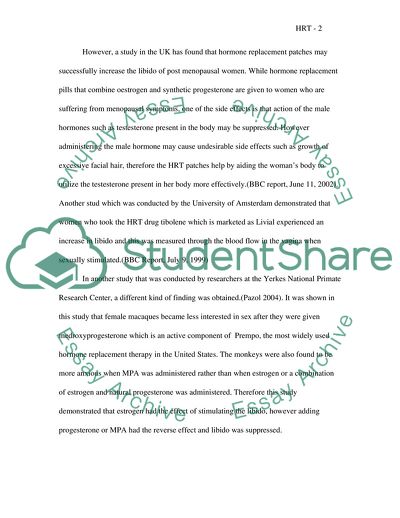Cite this document
(Hormone Replacement Therapy Report Example | Topics and Well Written Essays - 2250 words, n.d.)
Hormone Replacement Therapy Report Example | Topics and Well Written Essays - 2250 words. https://studentshare.org/health-sciences-medicine/1705600-does-hormone-replacement-therapy-effect-a-womans-libido
Hormone Replacement Therapy Report Example | Topics and Well Written Essays - 2250 words. https://studentshare.org/health-sciences-medicine/1705600-does-hormone-replacement-therapy-effect-a-womans-libido
(Hormone Replacement Therapy Report Example | Topics and Well Written Essays - 2250 Words)
Hormone Replacement Therapy Report Example | Topics and Well Written Essays - 2250 Words. https://studentshare.org/health-sciences-medicine/1705600-does-hormone-replacement-therapy-effect-a-womans-libido.
Hormone Replacement Therapy Report Example | Topics and Well Written Essays - 2250 Words. https://studentshare.org/health-sciences-medicine/1705600-does-hormone-replacement-therapy-effect-a-womans-libido.
“Hormone Replacement Therapy Report Example | Topics and Well Written Essays - 2250 Words”. https://studentshare.org/health-sciences-medicine/1705600-does-hormone-replacement-therapy-effect-a-womans-libido.


